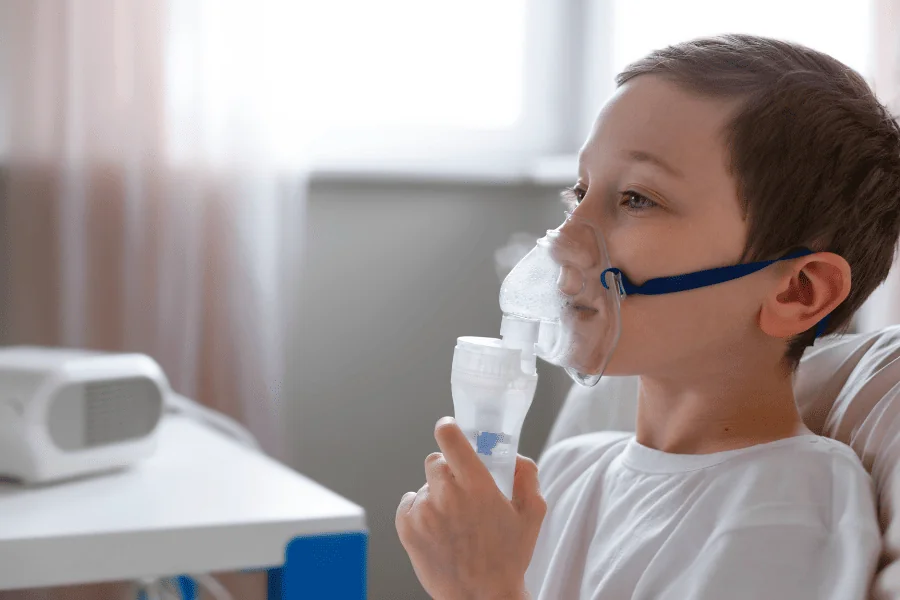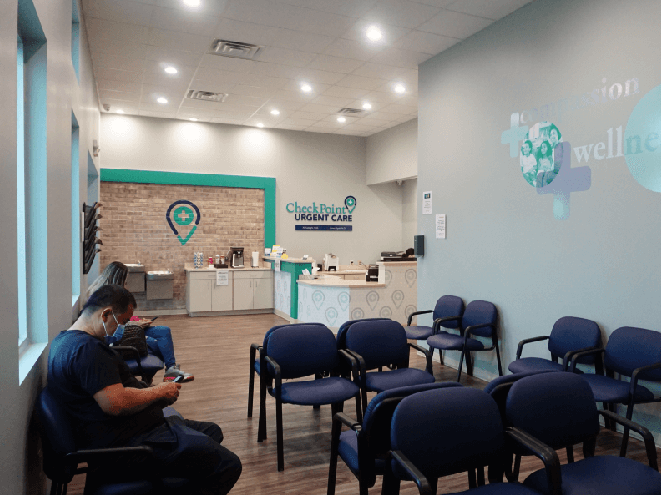Welcome to CheckPoint Urgent Care, where we aim to provide you with health insights to keep you and your loved ones healthy. Today, we’re focusing on a common health concern that affects millions each year: upper respiratory infections (URIs).
Types Of Upper Respiratory Infections
Upper respiratory infections are a broad category of illnesses that impact the breathing system above the chest. They can cause a variety of symptoms and differ greatly in severity. Understanding the exact type is important to know the treatment and when to contact a professional.
What are Upper Respiratory Infections?
URIs are illnesses that involve the upper part of the respiratory system, including the nose, throat, and airways. These infections can range from the common cold to more serious conditions such as bronchitis or sinusitis. Most of these are viral in nature, meaning they are caused by viruses, although some can be bacterial.
The Common Cold (Rhinitis)
The common cold, or rhinitis, is the most widespread URI and a frequent reason for doctor visits and missed days from school or work. Symptoms include a runny nose, sneezing, and congestion. While there’s no cure, the cold typically resolves on its own within a week or two. Treatment focuses on relieving symptoms with rest, fluids, and over-the-counter medications.
Acute Bronchitis
This condition is characterized by inflammation of the bronchial tubes, which deliver air to your lungs. Symptoms include coughing, wheezing, and sometimes difficulty breathing. Acute bronchitis often develops following a cold or other URI and usually improves within a few days, although the cough can persist for weeks.
Influenza (Flu)
The flu is a more severe respiratory illness caused by influenza viruses. Symptoms are similar to the common cold but include fever, chills, and body aches. Annual flu vaccinations are the best defense, and antiviral medications can be prescribed to reduce the severity and duration of the illness.
Pharyngitis
Pharyngitis, an inflammation of the pharynx, presents with a sore throat, discomfort when swallowing, and sometimes fever. Viral infections are the most common cause, but if it’s caused by bacteria like streptococcus, antibiotics may be required.
Laryngitis
When the larynx or voice box becomes inflamed, often due to overuse or infection, it can lead to laryngitis. This condition can cause hoarseness or loss of voice. Resting your voice and avoiding irritants like smoke can help in recovery.
Sinusitis
Sinusitis occurs when the sinuses become inflamed, leading to symptoms like a stuffy nose, facial pain, and pressure. Chronic cases may require treatment with nasal corticosteroids or even surgery to improve sinus drainage.
Otitis Media
An infection of the middle ear, typically seen in children, otitis media can cause ear pain, fever, and trouble hearing. If caused by bacteria, it may be treated with antibiotics.
How Are URIs Spread?
URIs are highly contagious and are spread through airborne droplets when an infected person coughs or sneezes. You can also get a URI by touching a surface that has the virus on it and then touching your face. It’s important to practice good hygiene, like washing your hands regularly and avoiding close contact with those who are sick.
Treating and Preventing URIs
While antibiotics can treat bacterial URIs, they are ineffective against viruses. Most viral URIs will resolve on their own, but there are ways to manage symptoms:
- Rest: Your body needs energy to fight off the virus.
- Hydration: Drink plenty of fluids to keep mucous membranes moist and to avoid dehydration.
- Humidity: A humidifier can add moisture to the air, helping to loosen congestion.
- Over-the-counter medications: Decongestants, antihistamines, and pain relievers can provide symptom relief.
To prevent URIs:
- Wash your hands frequently with soap and water.
- Avoid touching your face, especially the nose, mouth, and eyes.
- Stay away from those who are sick.
- Disinfect surfaces regularly.
- Stay up to date with vaccinations, including the annual flu shot.
When to Visit CheckPoint Urgent Care
If you or a family member is experiencing symptoms of a URI, especially if they are severe or not improving, it’s important to seek medical attention. At CheckPoint Urgent Care, we can help diagnose the type of URI, recommend appropriate treatment, and provide guidance on how to manage symptoms and prevent future infections.
Remember, while URIs are common, you don’t have to navigate them alone. Our team is here to support you every step of the way, ensuring you recover quickly and maintain your health in the long term.
For more information or to schedule an appointment, contact CheckPoint Urgent Care today. Stay healthy and breathe easy!








